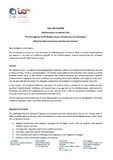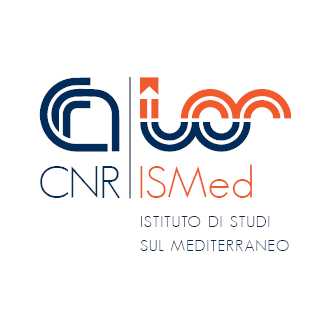Mediterranean economies 2024 “The New Agenda for the Mediterranean: Perspectives and Challenges”
Date:
1 December 2023

The Institute for Studies on the Mediterranean (ISMed-CNR) launches the Call for Chapters of the 2024 edition of Mediterranean economies.
Edited by Salvatore Capasso and Giovanni Canitano
“The New Agenda for the Mediterranean: Perspectives and Challenges”
Deadline for submission of abstracts: December 30, 2023
Information about the call and deadlines can be found in the call for chapter.
The Mediterranean is a region of great geopolitical, economic, cultural and environmental relevance, but also of deep tensions, conflicts and inequalities. The health, social, political and economic crisis caused by several dramatic events such as the COVID-19 pandemic, the Russian-Ukrainian and Israeli-Palestinian conflicts, combined with a significant increase in inflation, has exacerbated the vulnerabilities and fragilities of this area, but has also opened new spaces for dialogue, cooperation and integration among the riparian countries.
In this context, the European Parliament perceived the need to foster a renewal of the partnership with the Southern Neighborhood, rethinking and relaunching a new agenda for the Mediterranean, addressing the challenges and seizing the opportunities of the 21st century, with a view to sustainable development, social inclusion, human security and multilateralism (19 April 2021).
This initiative spans five broad areas of focus, dealing with crucial issues such as human development, economic resilience, migration, green transition, and peace and security.
Objective of the Book:
This yearbook edited by Salvatore Capasso and Giovanni Canitano, twenty years after its first release, aims to offer a multidisciplinary and up-to-date reflection on the main issues affecting the Mediterranean, with a focus on the following themes:
- Regional governance and relations between the European Union and the southern and eastern Mediterranean countries.
- Demographic, migration and human mobility dynamics
- Economic, social and cultural transformations
- Environmental and climate challenges and adaptation and mitigation strategies
- Conflicts, crises and threats to peace and security
- Initiatives for cooperation, dialogue and cohesion among civil societies and cultures
In particular, the book aims to explore in depth the different dimensions of the European Parliament’s Mediterranean Agenda, analysing its challenges, opportunities and expected impacts on the region.
We are interested in contributions that address the issues listed, considering the various subtopics of Agenda Interest:
- Human Development and Good Governance:
- Education and Vocational Training
- Reforms in public administration
- Human rights and accountable governance
- Economic Resilience and Digital Transition:
- Resilient and Sustainable Economies
- Economic connectedness and digital transformation
- Economic inclusiveness and innovation
- Migration and Mobility:
- Challenges of Irregular Migration
- Legal and safe routes to migration
- Socio-economic impacts of mobility
- Green Transition:
- Green growth and climate action
- Energy transition and energy security
- Resource efficiency and biodiversity
- Peace and Security:
- Supporting countries to address security challenges
- Solutions to regional conflicts
Last update
18 March 2024, 10:36

 CNR – ISMed
CNR – ISMed